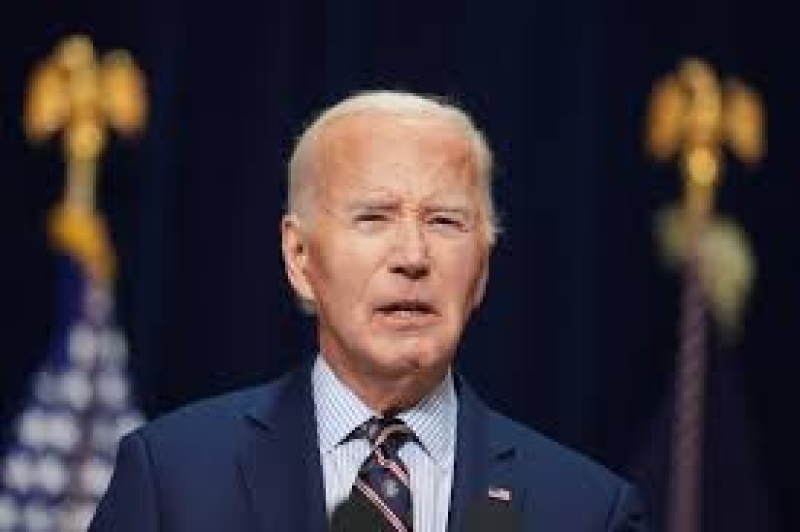- US Supreme Court Voids Donald Trump Global Tariffs |
- India looks forward to engaging with new govt in Bangladesh |
- No more running after doctors, services to reach doorsteps |
- ‘Revolutionary’ shift in economy, stock market soon: Amir Khashru |
- Stocks end week sharply lower as DSE, CSE indices tumble |
Nippon, U.S. Steel Sue Biden Over Blocked $15B Deal

Joe Biden, photo collected
Nippon Steel and U.S. Steel have filed lawsuits against the Biden administration, alleging a politically motivated decision to block Nippon’s proposed $15 billion acquisition of U.S. Steel, claiming the move lacked a sound legal basis. In addition to challenging the federal government, the steelmakers also named a rival company and union leader in the suit, accusing them of working together to thwart the deal.
The administration's decision to block the transaction, announced Friday, centers on national security concerns. President Biden argued that maintaining a strong U.S.-owned steel industry was essential for safeguarding American security interests, emphasizing that U.S. steel companies are crucial to the nation’s economic and defense infrastructure. "U.S. steel must continue leading the charge for America’s national interests," Biden said, despite Japan being a key ally.
The steelmakers filed separate suits in both the U.S. Court of Appeals for the District of Columbia and the U.S. District Court for the Western District of Pennsylvania, asserting that the decision was driven by political considerations rather than sound legal judgment. "Nippon Steel and U.S. Steel have acted in good faith, demonstrating how this transaction would enhance U.S. national security, not undermine it," the companies said in a statement.
Nippon Steel had pledged to invest $2.7 billion to modernize U.S. Steel’s aging blast furnaces in Indiana and Pennsylvania’s Mon Valley, and argued that the acquisition would help the U.S. steel industry compete against China’s dominance. Without Nippon’s cash infusion, U.S. Steel warned it would shift production to non-union electric arc furnaces and consider relocating its headquarters outside Pittsburgh.
The decision to block the deal came after the Committee on Foreign Investment in the United States (CFIUS) failed to reach a consensus on the acquisition’s potential risks to national security. The president’s move marks the first time a U.S. president has blocked a merger between a U.S. company and a Japanese firm.
White House spokesperson Robyn Patterson defended the administration’s position, citing national security experts who argued the acquisition could jeopardize American interests. “President Biden will always prioritize the security of this nation and its critical industries,” Patterson said.
In a separate lawsuit filed in Pennsylvania, Nippon Steel and U.S. Steel accused Cleveland-Cliffs Inc. and its CEO, Lourenco Goncalves, of colluding with U.S. Steelworkers union president David McCall to block the acquisition. The suit claims that this coordinated effort was intended to clear the way for Cleveland-Cliffs’ own bid to acquire U.S. Steel, which had been rejected before Nippon’s offer was accepted. In 2023, Cleveland-Cliffs had proposed a $7 billion offer, which was turned down by U.S. Steel in favor of Nippon’s higher all-cash offer.
The lawsuit claims that McCall and Goncalves colluded to damage U.S. Steel’s ability to compete and prevent any acquisition other than Cleveland-Cliffs'. McCall, however, dismissed the accusations as unfounded. “Blocking Nippon Steel’s acquisition of U.S. Steel was a victory for American national security and the domestic steel industry,” McCall said, pointing to past criticisms of Nippon Steel’s trade practices, including accusations of unfairly flooding U.S. markets with cheap imports.
Cleveland-Cliffs, headquartered in Ohio, did not respond immediately to requests for comment.
The lawsuit also claims that CFIUS was instructed to avoid offering any counterproposals or engaging in discussions with Nippon Steel and U.S. Steel, suggesting the review process was manipulated to reach a predetermined outcome. The companies allege that Biden’s decision was influenced by political motivations rather than the interests of the steel industry.
The legal battle comes at a time of increasing political tensions over trade policy. President-elect Donald Trump, who has criticized the acquisition, reaffirmed his intention to block the deal, pledging to use tariffs and tax incentives to bolster U.S. Steel. "Why sell U.S. Steel now when tariffs will make it far more profitable?" Trump wrote on his Truth Social platform. “U.S. Steel can once again be the world’s greatest company.”
Following the news of the lawsuits, shares of United States Steel Corp. rose more than 3% in Monday morning trading.

